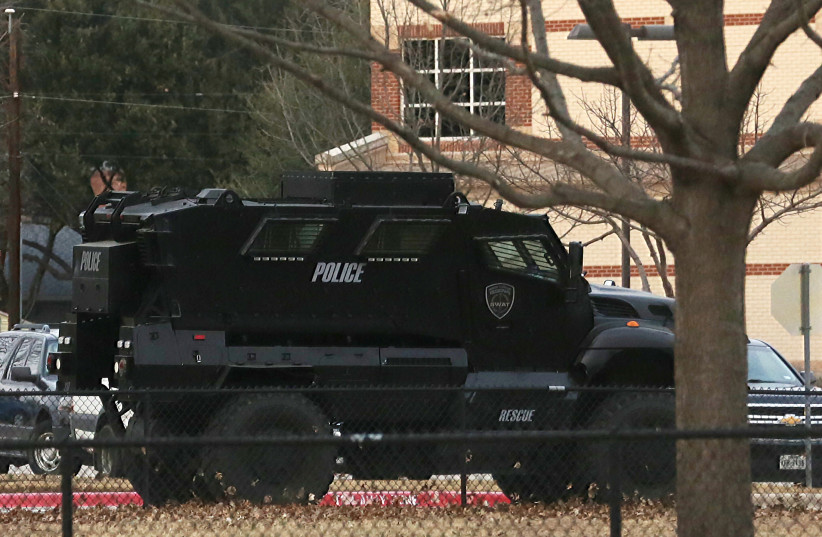The Combat Antisemitism Movement (CAM) on Thursday released a new study showing that the hostage-taking at the Beth Israel synagogue in Colleyville, Texas, last month came amid an uptick in social media activity advocating for the release of Aafia Siddiqui, a Pakistani neuroscientist convicted of attempting to murder US troops and FBI agents, who the Texas attacker demanded freed from prison.
The study was issued by the Network Contagion Research Institute (NCRI), which found that activity on Twitter using hashtags such as #IAmAafia spiked to thousands per week in September 2021.
The organization also traced the activity to influencers and bots in Pakistan promoting extremism, the Texas branch of the Council on American Islamic Relations (CAIR) and the pro-Taliban Free Aafia Foundation.
The movement advocating for Siddiqui's release gained new momentum after claims that she had been beaten in prison. According to CAM, several incidents followed.
At a CAIR rally outside Siddiqui’s prison in September, a speaker mentioned "Zionist judges." In November, CAIR-California leader Zahra Biloo spoke about “Zionist synagogues” in a YouTube video.

"While difficult to make a definitive cause and effect connection, extremist rhetoric can radicalize people, and lead to violent outcomes," said Elan S. Carr, former US Special Envoy to Monitor and Combat Antisemitism, who serves on CAM’s Advisory Council. "Studies have shown online radicalization can be accomplished especially fast. The coordinated campaign for Siddiqui, a raving anti-Semite, indulged in anti-Semitic tropes and inflamed supporters. One radicalized supporter flew from England to Texas to visit terror on an innocent Jewish community during Shabbat services."
